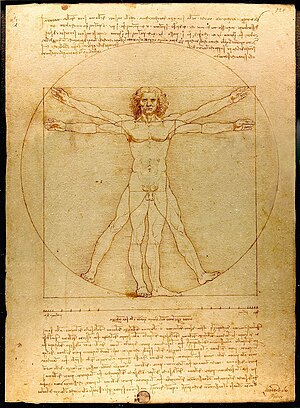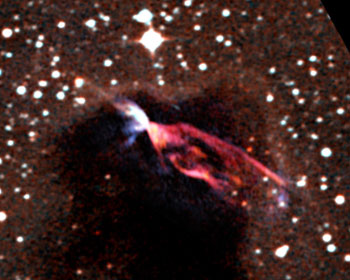
Saturday, August 31, 2013
quote for the day
Image Credit: Hubble Legacy Archive, NASA, ESA - Processing: José Jiménez Priego
The above image is a close up of an interacting galaxy(I don't think there's any galaxy that doesn't have interacting irregular galaxies; but, maybe not always as big as what M51 has to deal with). I give a picture of M51 below to give some perspective on what the above picture is referring to.
Credit: NASA, ESA, S. Beckwith (STScI), and The Hubble Heritage Team (STScI/AURA)
"Nothing has been more injurious to philosophy than mathematics." - Immanuel Kant
Thursday, August 22, 2013
thought for the day/Ptolemaic epicycle theories
"philosophy is questions that may never be answered
religion is answers that may never be questioned"
- anonymous; some guy off a American football Buccaneers messageboard said this!
Many people recently have tried to call certainly string theory an epicycle theory. Some go so far as to call out Quantum Mechanics and Einstein's theories of relativity 'epicycle.' Maybe they are in some ways. Quantum Mechanics for one went through several stages of re-expression(equivalent expressions); pretty much, there was Bohr's combining of Planck's constant with Rutherford's experimental findings(and calculating the spectral formula experimentally determined decades earlier), then Heisenberg's Matrices, then Shroedinger's wave mechanics, and then more or less Paul Dirac's combining of special relativity with quantum mechanics(which predicted anti-matter). So, one could say that all the theories of quantum mechanics before Paul Dirac's were epicycle. One major difference between the quantum mechanics theories and Ptolemaic epicycles is that those quantum mechanics stages were confirmed by experiment. Ptolemy's epicycles were never really confirmed; they were always adding one device after another to fix this problem or that problem. It's a subtle difference.
I bring this up because Bertrand Russel points out that Einstein's General theory of Relativity essentially made Isaac Newton's F=ma a very terrestrial mathematical view. It's almost the mathematical equivalent of someone going out, looking around and concluding the Earth is flat. Someone that hasn't been on a boat long enough and travelled around enough to notice some odd occurences. So the thought came to me that F=ma is Ptolemaic like. Once again, the difference between F-ma and Ptolemy's epicycles is one has been confirmed scientifically. Another major difference is that Isaac Newton's F=ma wasn't necessarily disproven, it was put in its place and integrated in a more general theory - Einstein's General theory of Relativty.
I suppose I should finish there, but somewhat related is how John Stillwell in his "Mathematics and Its History" points out that Newton's mechanics is a very local theory. The inverse law works to describe each next point locally. As we know today starting from Henry Poincare, the three body problem leads to chaotic dynamics. Topology was established as a field by Henry Poincare to deal with this. If Newton couldn't do his differential calculus, the mechanics he created and led to the industrial revolution never would have happened. This reminds me of a point I made in the previous incarnation of this blog.
The problem Kepler had with his Platonic solids model of the solar system was Mars orbit was odd. Later after he tried the ellipse conic section, he saw that Mars orbit is eight degrees from perfect circularity. If Mars orbit had been imperceptively circular when Kepler came along, he never would have come up with his three laws. Newton never would of thought to derive them from any inverse square law. The industrial revolution never would have happened. Or it wouldn't have gotten far. It's just like the agricultural cultures for thousands of years before . . . where, when the crops didn't come, they'd resort to their nomad, hunter-gatherer skills for awhile, then try it again(see Silverman and Finkelstein's "The Bible Unearthed").
Well, Newton might have thought to figure out the motions of the planets; but, it might have taken far longer without Kepler already having found the three laws of planetary motion. Newton would need to do all the astronomical observations, struggle with what's the right model(ellipses). Still, Newton's inverse square law might not have been taken seriously. Before Newton does all the astronomy needed, or someone else, the cultures would have been destroying each other over all kinds of problems that can only be solved by a more scientific technology.
Wednesday, August 21, 2013
thought for the day
This is some latest results from ALMA a hugh like hundreds of micrometer wavelength interferometer in South America which should get exciting scientifically.
"Philosophy is harder than mathematics." - Plato
Calculus courses usually start with, more or less, Fermat's tangeant method and the algebraic equivalent. They then work out various general derivative formulas. The Integral is introduced as a sum first and then they point out there's these anti-derivatives. It's a mystery and everyone just says Newton was a genius for noticing and making the connection between the derivative and the integral in the "Fundamental theory of the Calculus." But, John Stillwell, in his "Mathematics and It's History" does some history detective work to show how Isaac Newton knew about this connection.
The Arabs brought the indian idea of zero and place value numerology to recast much Greek mathematics in a simpler form. This new expression of mathematics was more generalizable as well to higher dimensions; but, that is getting beyond even them. Did the Hindu/Arab numerals really make Greek mathematics obsolete? Not really, not until Descartes coordinate geometry. But, as it turns out Descartes had a precursor as well.
Oresme around 1300 introduced coordinates and noticed that distance is the area of velocity. That mere observation is as far as he could take it and then the European 'Black plague' happened. How this bit of information survived and got into Galileo's hands nobody knows(as far as I know!).
The idea of speed as the slope of distance appears to be due to Torricelli(remember him as the guy who solved the water in the mines in James Burke's 'Connections: episode 3'? And, he got the bit about distance as the area of velocity from Galileo. How this bit got to Isaac Newton, I havn't heard(apparently neither has John Stillwell). But it did.
In fact, Isaac Newton got his news from an Isaac Barrow. His claim to fame is that he knew of this and passed it on to Isaac. So that from Italy all the up to England pretty quickly. And so we see how people are finding and combining ideas from previous people. This is no flash in the pan insights. Isaac Newton got his idea for actually computing derivatives from Fermat of course.
I bring this up cause it shows how ideas are spread and combined in weird ways(even if we still can't quite see how ideas are preserved despite plagues and distance . . . including cross culture idea transfers), and to point out something about those initial observations later to be combined and then generalized by Fermat's tangent method. The observations of distance is the area of velocity and velocity is the slope of distance are like Jacob Bronowski's 'inferred units' which I explain in my "Origins of Mathematical knowledge"(third post of this blog). I'll just review the point about sentences; how in a sentence, certain noun words make sense with certain verbs. Here we have certain concepts generated by others and put in sentence form. What we have further is the combining of the two. By seeking to define this creative combination, mathematicians opened up a river of knowledge - differential equations, calculus of variations, complex analyses, and real analyses, integral equations. It all comes out filling in the gap between the creative combining of the two observations.
----------------------science/technology extra
A year or so ago, there was a report that Europe made making memrister a.i. happen as a national priority. Here, we see just one recent news about making memrister chips, Memrister chips within weeks . This is a jump in computing ability that's pretty big; it should be interesting just in the next year to see what affect it has on all of humanity really.
Thursday, August 15, 2013
thought for the day/Venice
Image Credit & Copyright: Ignacio Diaz Bobillo
There's been many Lagoon nebula pictures through the years; this is just the latest one. Since Venice is built in a Lagoon, I thought I'd go ahead and post this latest pretty good amateur photo.
". . . as the work of man, science is subject to his arbitrariness and to all the imperfections of his mental powers. There would essentially be no more science for a man gifted with an unbounded understanding- a man for whom the final conclusions, which we attain through a long chain of inferences, would be immediately evident truths." - Richard Dedekind
I've argued the dark ages were brought about by an anti-Greek knowledge, and pointed out some of the history of how that Greek knowledge was brought about into Europe again - through the Arab Spanish Andalucía around 1060A.D. One light of the dark ages was Venice.
Well, I don't think the Venice we see today was built pre- a 1000A.D. But, the founding and growth of Venice was influenced by the Barbarian destruction of Rome and Italy.
This is the first major building of Venice, the Torcello church on the Torcello island.
The Venicians would go on to build in the lagoon lots more great architecture(in the form of Christian churches). Saint Marks Cathedral is probably the greatest.
Apparently, the Venicians were told that Saint Marks bones were in the city of Alexandria. They went to Alexandria and brought those bones back to Venice and Saint Marks cathedral. Now, what were Saint Mark's bones doing in Alexandria of all places? Could the Gospel of mark have been written in Library of Alexandria?
The Venicians profited one from salt trade and two the crusades. It was after the crusades that Venice started becoming what we see today. They brought back these Roman horses. I guess these were original Caesar horses.
Venice was plundered by Napolean Bonaparte for his war to rule the world. The horses were taken to France, but then later returned.
Venice was where Marco Polo came from. Marco Polo went to tour as far East as he could. He was to gather as much information about what's East of everything the Venicians know about.
Venice was also home to some of the events surrounding the life of Galileo. Some say one of his big mistakes was leaving Venice and hanging out on the mainland where Rome could get their hands on him.
Venice was a world power up to the Portugal/Spain, and then French and English plundering of the Americas around late 1490. Before then, Venice coins were the market standard. Venice coins have been found as far as China.
Venice was also the worlds first representative democracy with a system of checks and balances. They are the worlds oldest Nation.
After the discovery of the Americas, Venice became more of a pleasure capital. They were known as the brothel of Europe where princes got their education. They're pretty much still that way. They now have a university dedicated to figuring out how to keep the sea from swallowing up Venice.
-------------------------------------science/technology extra
Mostly just dna-nanotech again! Researchers's have combined dna-nanotech with temperature sensitive smart materials to control chemical reactions. Using Temperature-Sensitive Smart Polymers to Regulate DNA-Mediated Nanoassembly
We're practically in a nanomanufacturing era now. Although a dna-nanotech era, it can do much.
Some science news, potentially anyways, is gravity meters detecting gravity waves is imminant . This is the second announcement of the same breakthrough in a month; they're obviously excited about it.
Another exciting astronomy news is the Russian Spectr R interplanetary radio interferometer. They say it will go into full science mode in late august(whatever that means, it must mean 'soon'! It will still be in reduced duty cycle until October. Well, it's a big project. It's coming(vastly greater radio astronomy).
-19oct2013 edit
A technology the Venice people had that I've learned of recently is mirror making. They apparently started making the best mirrors around 1200 A.D. They put the manufacturing of mirrors on an isolated island and kept it a secret. This was just one of the sources of revenue that made Venice what it was then and now.
Monday, August 12, 2013
quote/thought for the day
ESA/NASA Hubble Space Telescope image.
Here's an image of an irregular dwarf galaxy(all irregular galaxies are dwarfs) 16 million light years out. The Andromeda galaxy is two million light years out. As with all Hubble space telescope images of galaxies, the surrounding inter galactic space with galaxies spiraling off to infinity is more fun than the individual galaxy highlighted(at least most of the time and in this picture).
"you become a mathematician so that people should study you, not that you should study Leibniz!" - Paul Erdos
Paul Erdos is referring to some mathematians he found who were studying the metaphysics of Leibniz and not mathematics. I myself am finding that mathematicians today want to study metaphysics and connect it with mathematics Plato/Pythagoras style. They do so as a social grace; some think that by studying the "Tao of Physic" they can gain some creative insight. I like to say "the dark side of the force is not to be under-estimated." and/or, "the dark side of the force is strong with this one."
A mathematician defines and sweeps away vagueness; it doesn't use it to hide behind like the god believers do.
- Getting on to some other "thought for the day."
I was rereading E.T. Bell's "Magic of Numbers", and in it he pointed out some connections that James Burke didn't find. E.T. Bell pointed out that musical sounds could have come about by means of the plucking of the strings of the bows that ancients would have used to shoot arrows with.
Really, we don't know how Pythagoras experimented to see the numbers of musical notes. But, the fact that the plucking of the bows created a tonal sound is interesting.
I don't see how else Pythagoras could have been inspired to experiment with different length "cords." So, I'm going to have to say this is a highly probable connection.
What's of more importance is that people were plucking their bow strings for thousands of years before Pythagoras, but none ever thought to experiment or apply mathematics to it; to see the connections and a systematic understanding of those sounds. It was only when someone from the right perspective, a mathematical one, that the connection and inspiration is made.
It's a bit like a strobe light that can't see the airplane's propeller(I used to experiment with this when young in my garage; i'd turn out the lights, spin the propellers of the toy airplance hanging in the garage and turn on the strobelight; you'd get some weird propeller affects depending on whether the the strobelight was going faster or slower than the airplane propellers rotation rate) until you adjust the strobelight to the right frequency of the airplane's propeller. People have their perspectives(their strobelights), and if it's not on the right frequency, they just don't get or see things starring right in front of them. One of the mathematicians tricks is to always take the general viewpoint.
I'm amazed at the god believers who don't see the messianic strain in the Jesus Christ tale. Christians for one have been reading that bible through and through for two thousand years(give or take a few hundred years), and they never notice all the Roman and Herodian bias in the New Testament. They think it's about . . . love! I'm amazed at the scientists and mathematians who understand the difference between pseudoscience(god religions) and true mathematical science. Maybe they do, but for socially bound up reasons, they choose to ignore it.
Humanity is the science and technologically dependent species; it is what defines us from the other life on Earth; this is obvious and easy to see for anyone who has stopped themselves to think about things, yet, it doesn't appear that most people on Earth today have hit on this idea. We're going into the nanotechnology era; dna-nanomanufacturing is one pathway; recently, Dna-nanotechnology has been given the ability to control chemical reactions, thermodynamic smart material dna-nanomanufacturing . We're going into the nano era right now, and humanity is not psychologicaly ready.
Consider James Frazer's "The Golden Bough." As a species that should want the truth, we should welcome this study of magic and religion. Yes, it states the truth that religion is made up. But, it also shows how mythology was a kind of science of its day; or that was the hope. Religion developed as each religion proved to be empty. We should find this fascinating to know of this evolution of thought. But, James Frazer is considered bad for pointing out that their religions were false and that is why the religions evolved form one stage to another. People have this 'conditioned' strobe light perspectives, a kind of religious zeal, that people's beliefs should not be questioned. This is the path to the dark side of the force, to Nazyisms.
Subscribe to:
Posts (Atom)






